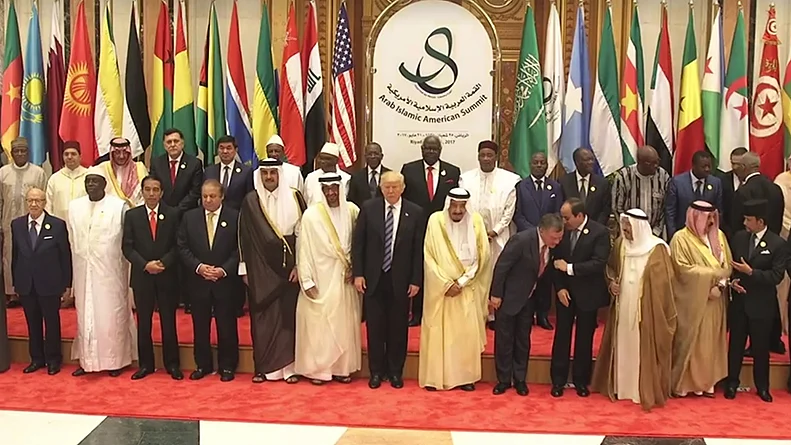Trump widens Shia-Sunni divide on his first foreign trip
The US President backed the plan to form an all Sunni-military alliance, which would be commandeered by Pakistan, during his bilateral visit to Riyadh

US President Donald Trump has opened wide the already existing Shia-Sunni faultlines in the Arab world, as he winded up the inaugural leg of his first overseas trip after assuming presidency.
Trump attacked Iran in his keenly watched address at the Arab-Islamic-American Summit in Riyadh over the weekend, and threw his weight behind the combined might of predominantly Sunni countries in fighting terrorism in the region.
As he addressed leaders and delegates from 55 Muslim countries, he accused Tehran of funding arms and training terrorists. “Lebanon to Iraq to Yemen, Iran funds arms and trains terrorists, militias and other extremist groups that spread destruction and chaos across the region,” Trump said.
“It is a government that speaks openly of mass murder, vowing the destruction of Israel, death to America, and ruin for many leaders and nations in this very room.”
Trump’s remarks mark a prominent, and an expected, departure from the policies of the Barack Obama administration, which had successfully inked a nuclear deal with the Shiite country, besides lifting some of the crippling economic sanctions.
However, Trump has also returned to the classic American foreign policy towards the Middle-East, of putting all the eggs in the basket of Saudi Arabia.
Though Trump, since being sworn to power, hasn’t imposed any drastic sanctions on Iran, his rhetoric towards Tehran has been making peace advocates nervous.
“Iran is playing with fire –they don’t appreciate how “kind” President Obama was to them. Not me! (sic)” Trump had tweeted on February 3. He has decried the nuclear deal as the “worst deal ever,” even after advice from powers like Russia and China, both of who have claimed that Iran’s nuclear weapons’ programme was put on hold because of nuclear pact.
Trump backs ‘Sunni NATO’
A prominent highlight of the visit was the Trump administration backing a North Atlantic Treaty Organisation (NATO)-like military alliance of Sunni countries, mainly to combat the Islamic State (IS) in Syria and Iraq.
The Riyadh Declaration signed during the visit calls for mobilising 34,000 troops from 55 predominantly Sunni countries in order to fight extremism. The Saudi-headquartered alliance will be commandeered by former Pakistan Army head General Raheel Sharif, who along with Pakistan Prime Minister Nawaz Sharif, was also present at the Riyadh Summit.
The all-Sunni force, once in operation by 2018, is expected to conduct ground operations in ISIS-infested Syria and Iraq, where it will be put in direct confrontation with Iran-backed Shia militias, more so in Syria, where Iran is seen propping up the regime of Bashar al-Assad that the US has always opposed.
Besides being an indirect combatant, Iran is also backing the Hezbollah in Lebanon and, the Houthi rebels in Yemen, where Saudi-led forces have been embroiled in a military campaign. It was reported that on the eve of Trump’s visit to Riyadh, a missile fired by Houthis towards Riyadh was shot down before it could hit the target.
Trump also sealed deals worth $110 billion with his hosts, which would involve American defence companies supplying high-end weaponry to Riyadh.
Reacting to the developments happening in the region, Iran’s foreign minister tweeted: “Iran - fresh from real elections - attacked by @POTUS in that bastion of democracy & moderation. Foreign Policy or simply milking KSA of $480B? (sic).”
Follow us on: Facebook, Twitter, Google News, Instagram
Join our official telegram channel (@nationalherald) and stay updated with the latest headlines